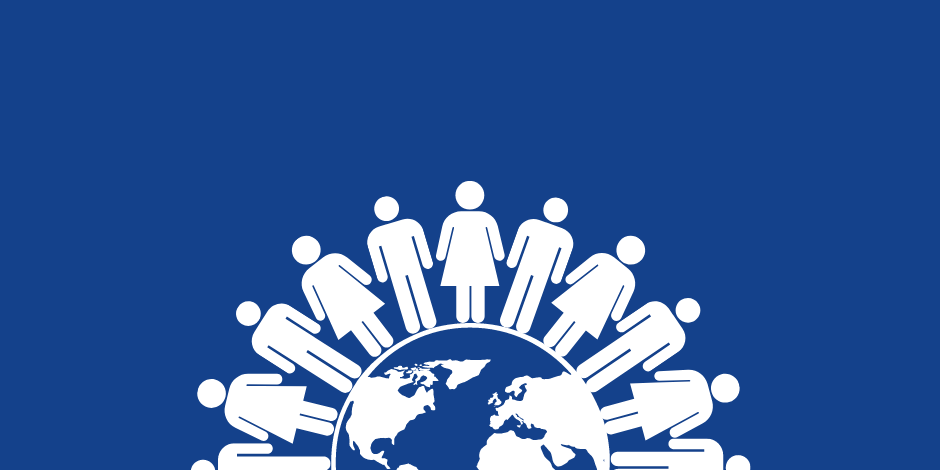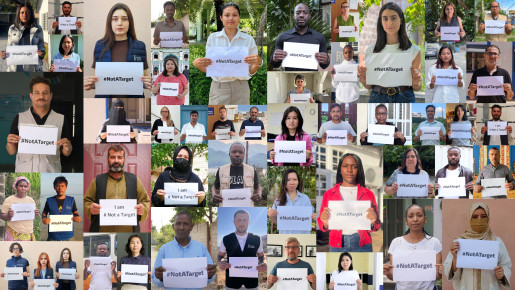On World Humanitarian Day, We Stand Shoulder to Shoulder With Those In Need
Published: Aug 16, 2023 Reading time: 4 minutes Share: Share an articleAs our efforts increase, so do the challenges we face. From rising geopolitical tensions and blatant disregard for international humanitarian law, to disinformation campaigns, our work has never been as difficult, dangerous, or demanded.

We strive to be closer to the people we support and help on their journey towards a better and safer life. We go deep into disaster-affected areas and closer to the front lines of conflict with the sole purpose of providing the necessities of life: food, water, shelter, education, nutrition and psychosocial support.
On the occasion of World Humanitarian Day, we reaffirm our commitment to the values and humanitarian principles that guide our work. We remind ourselves that we stand shoulder to shoulder with the communities we serve, no matter who they are or where they are. #NoMatterWhat.
No matter where
On the frontline in Ukraine, in the inaccessible mountains of the Democratic Republic of Congo, but also in war-torn and earthquake-torn Syria—you can meet our colleagues everywhere. They help the world's most vulnerable people every day.
Our humanitarian colleagues go to disaster-hit areas and the front lines of conflict to rescue and protect those affected by man-made and natural crises. We conduct humanitarian work in more than 20 countries. One of our notable humanitarians is Zurmati, who is helping his fellow Afghans in Afghanistan and, as he says, "Leaving is not an option. We have to stay and work for a better future for the next generation."
There were slightly fewer attacks on aid workers in 2022 compared to previous years. However, the number of kidnappings has increased significantly. A total of 444 aid workers were attacked in 235 attacks, with 116 aid workers killed, 143 injured, and 185 abducted according to United Nations.
No matter who
Humanitarian aid cannot work without local employees. All aid must be mediated by local people who stand alongside those in need if it is to reach the most vulnerable. Our basic principles are humanity, impartiality, neutrality, and independence.
At People in Need, our Relief and Development Department employs 2,424 humanitarians globally, of whom 2,228 work in our foreign missions. Of these, 2,114 of our colleagues are hired locally in the countries where we work. Adélia is one of the workers who decided to make a difference in her community and took the work at PIN as a unique opportunity. Today, she works on nutrition in remote areas of rural Angola.
No matter what
No matter what happens, as humanitarians, we are always ready. In addition to our traditional work, we increasingly have to deal with natural disasters and conflicts that are taking place all over the world. Very often, our work and our lives change from one minute to the next, and we have to be able to immediately start working in unfamiliar situations. Shalik has a similar story; just two weeks after his wedding went to help people affected by the 2015 earthquake in Nepal. "My parents always motivated me to help those in need," says Shalik. "They said helping people is the greatest good ever."
Background
On 19 August 2003, a bomb attack on the Canal Hotel in Baghdad, Iraq, killed 22 humanitarian aid workers, including the UN Special Representative of the Secretary-General for Iraq, Sergio Vieira de Mello. Five years later, the United Nations General Assembly adopted a resolution designating 19 August as World Humanitarian Day (WHD).
Since 2012, six of our Syrian colleagues have been killed whilst working to help the people of Syria. In June 2015, the worst tragedy in our history struck when nine of our Afghan colleagues were killed in an attack. We continue to work in Syria and Afghanistan in their memory.



